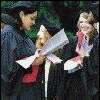 |
|
York to Pioneer Holocaust and Anti-Racism Education Project for Young Educators
On March 29, a small group of international experts from Germany, Poland and Israel along with Webber and one American scholar, will evaluate the symposium and discuss the changing international context of Holocaust education, museums, and memorial sites while analyzing current developments in the culture of remembrance. Webber's work in international exchange and understanding -- for which the Federal Republic of Germany awarded him the Order-of-Canada equivalent , "The Officer's Cross of the Federal Order of Merit," -- will help as the group discusses such complex and practical issues as:
Both the symposium and the subsequent discussion are sponsored by the Memorial Site Auschwitz-Birkenau, the Goethe Institute in Cracow, the International Youth Encounter Centre Auschwitz/Oswiecim and the Foundation "Topography of Terror" (Berlin). The events are part of the European Cultural Capital Program of the City of Cracow.
Webber notes that the German debate about art, history, monumentality and the culture of remembrance that was sparked by the plans for a Holocaust monument in Berlin coincides with Polish authorities' plans to develop more modern conceptions for the sites memorializing German crimes, such as Auschwitz. The relationship of documenting and memorializing, and the role of private and public memory are only two issues which arise in this debate.
Citing the invitation to the conference, Webber says: "Auschwitz continues to occupy a central position among diverse national cultures of memory , and is also a locus of numerous identities. The main idea of this symposium is to link these cultures and identities in dialogue."
Teaching for the Future, Learning from the Past:
While in Poland and Germany, Webber will be hard at work with his colleague, Prof. Michael Brown, Director of York's Centre for Jewish Studies, on their project, Teaching for the Future ñ Learning from the Past: A Holocaust and Anti-Racism Education Project for Young Educators. The two scholars' international project will give future teachers from Canada, Germany, and Poland the opportunity to acquire knowledge and pedagogical approaches that will help them counter intolerance.
The students will undertake a field course in Germany and Poland, visiting historical sites and meeting with experts on Holocaust and anti-racism education. Some months later, the European students will come to Canada for a follow-up symposium which will focus on the projects all have been carrying out in the meantime. The first trip is planned for the summer of 2001.
Webber said the objective is to provide Canadian students with the knowledge and skills to teach against racism, using antisemitism, the Holocaust, and the European experience as primary examples. The project will also involve representatives of stakeholder groups in Canada, German, and Poland, and facilitate face-to-face interaction between Canadian Education students and their European counterparts with the goal of establishing an international network of informed and qualified teachers.
"The century just ended saw dreadful and unprecedented forms of racism and antisemitism among which the Holocaust stands out in its uniqueness," Webber says. "Although access to Holocaust survivors and eyewitnesses is becoming increasingly difficult, understanding the events is as important as ever. This project seeks to counter intolerance by educating those who will teach the next generations. It does this by examining the Holocaust in the context of the present, learning from the past, but directed towards the future," says Webber, who in the summer of 1988 helped lead a group of teachers from across Canada to Holocaust sites and other memorial sites in Germany and Poland.
For more information, or to arrange interviews with Prof. Webber while he is in Poland and Germany, please contact:
The Canadian Centre for German and European Studies
Sine MacKinnon
Prof. Mark Webber:
Friday, March 24 through Saturday, March 25
Sunday, March 26 through Wednesday, March 29
Thursday, March 30 through Monday, April 3
Friday, April 7 through Monday, April 10 |
|
|
| | Welcome to York University | Latest Release | Release Archives | |
![[to York's Home Page]](../../images/yorklogos.gif)
